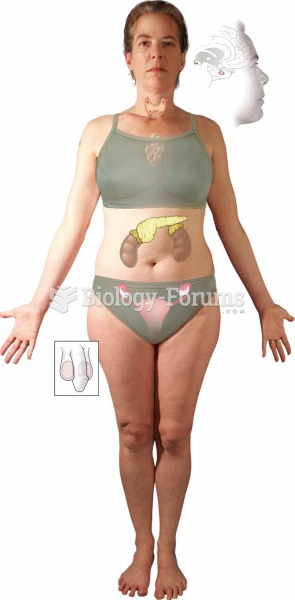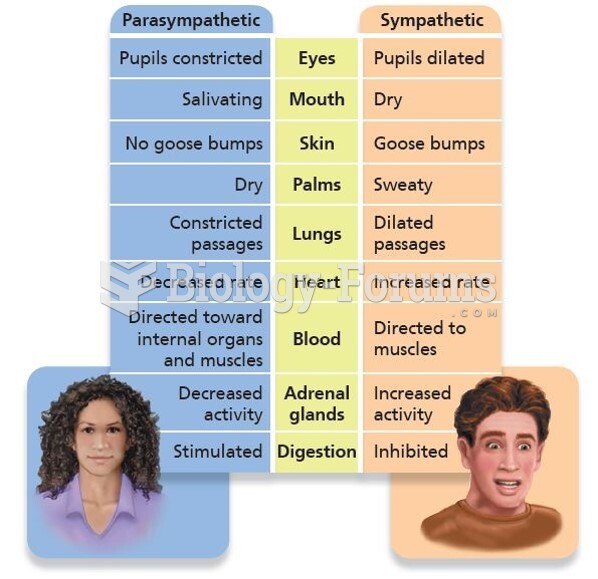|
|
|
Blood is approximately twice as thick as water because of the cells and other components found in it.
More than 30% of American adults, and about 12% of children utilize health care approaches that were developed outside of conventional medicine.
Long-term mental and physical effects from substance abuse include: paranoia, psychosis, immune deficiencies, and organ damage.
For pediatric patients, intravenous fluids are the most commonly cited products involved in medication errors that are reported to the USP.
Hip fractures are the most serious consequences of osteoporosis. The incidence of hip fractures increases with each decade among patients in their 60s to patients in their 90s for both women and men of all populations. Men and women older than 80 years of age show the highest incidence of hip fractures.







